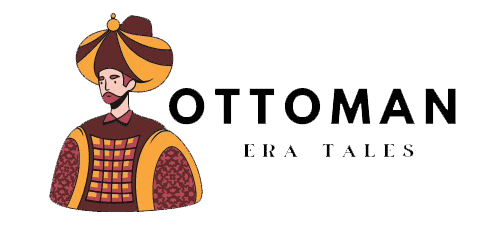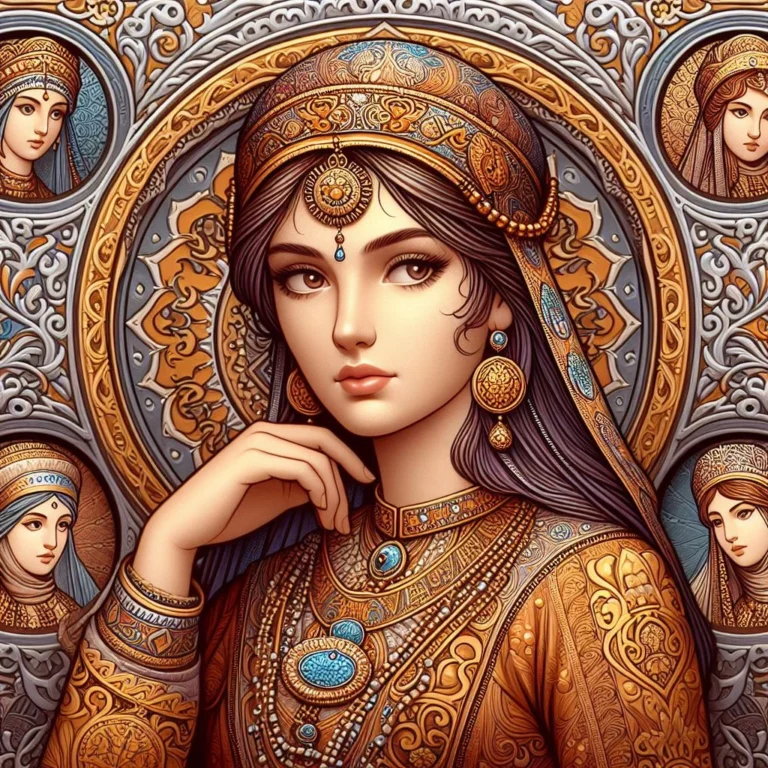Welcome to a captivating journey through Turkish history as we delve into the fascinating life and legacy of Rabia Bala Hatun. A figure shrouded in intrigue, her influence in shaping Turkish history is profound and enduring. Join us as we unravel the story of this remarkable woman who left an indelible mark on Turkey’s past, present, and future fabric.
Let’s embark on a journey exploring the profound impact of Rabia Bala Hatun on Turkish history. Her story is not just one of love and loss but also resilience and determination. By tracing her footsteps, we uncover a narrative that transcends time, weaving through the tapestry of Turkey’s rich heritage.
Married to Osman I, the founder of the Ottoman Empire, Rabia Bala Hatun played a pivotal role in shaping the destiny of a burgeoning nation. Her unwavering support and sage counsel guided Osman through turbulent times, solidifying their legacy as pioneers of a new era.
Rabia Bala Hatun remains an iconic figure in popular culture, revered for her strength and grace. Her legend is a beacon of inspiration, whether portrayed in historical dramas like Kuruluş Osman or celebrated in folk tales passed down through generations.
Join us as we delve deeper into the life and times of Rabia Bala Hatun – a woman whose influence reverberates through the annals of Turkish history.
Rabia Bala Hatun
Rabia Bala Hatun, a prominent figure in Turkish history, played a significant role during the early years of the Ottoman Empire. As the wife of Osman I, the dynasty’s founder, she held an influential position that shaped history. Her wisdom and support were crucial in establishing a solid foundation for the empire’s expansion.
Known for her intelligence and strategic thinking, Rabia Bala Hatun was respected by her husband and those around her. She was instrumental in advising Osman I on crucial political decisions and was regarded as a trusted confidante.
Despite her historical importance, much about Rabia Bala Hatun remains mysterious. However, her legacy lives on through various cultural representations, highlighting her significance in Turkish folklore and historiography.
Marriage to Osman I
Rabia Bala Hatun’s marriage to Osman, the founder of the Ottoman Empire, was a significant event that shaped Turkish history. As one of his wives, Rabia played a crucial role in supporting Osman and the growth of the empire. Their union solidified alliances and showcased Rabia’s strength and wisdom.
The marriage between Rabia and Osman symbolized more than just a marital bond; it represented unity and power within the empire. Together, they navigated challenges and triumphs, leaving a legacy for generations.
Their partnership was marked by respect and mutual understanding, laying the foundation for future rulers of the Ottoman Empire. The connection between Rabia Bala Hatun and Osman was built on trust, love, and shared goals for their people.
This union shaped Turkish history by establishing an enduring dynasty that would shape future empires.
Death and burial
After a life of courage and resilience, Rabia Bala Hatun’s legacy was immortalized by her death. The exact circumstances surrounding her passing are shrouded in mystery, adding to the intrigue of her story. Despite the lack of detailed historical records, her burial is considered a solemn affair, befitting a woman of such stature.
Rumors swirl about the location of her final resting place – some say she was buried alongside Osman Bey in Sogut, while others claim she lies in a different sacred site. Regardless of where she now rests, one thing remains certain: Rabia Bala Hatun’s impact on Turkish history reverberates through the ages and continues to inspire generations with her courage and unwavering loyalty.
Her death marked not an end but a beginning – sparking tales that would echo down the corridors of time and solidify her as a legendary figure in Turkish folklore.
In popular culture
Rabia Bala Hatun’s legacy extends beyond historical records and into popular culture, where she continues to captivate audiences through various mediums. In modern Turkish television series like Kuruluş Osman, Rabia Bala Hatun is portrayed as a strong-willed and influential figure who played a crucial role in shaping the early years of the Ottoman Empire.
Her character exemplifies resilience, wisdom, and unwavering loyalty to her husband, Osman Bey. Through her portrayal on screen, viewers are drawn into the tumultuous world of medieval Anatolia and witness firsthand the challenges faced by early Turkic tribes.
Rabia Bala Hatun’s story inspires many creatives seeking to explore themes of love, power dynamics, and political intrigue in literature and art. Her presence in popular culture entertains and educates audiences about Turkey’s rich history and the remarkable women who helped shape it.
Whether depicted in books, paintings, or TV shows, Rabia Bala Hatun remains a beloved figure whose impact transcends time barriers.
Biographical information
Rabia Bala Hatun, also known as Rabia Sultan or simply Bala Hatun, was a significant figure in Turkish history. Born in the 13th century, she was renowned for her intelligence and courage. As the wife of Osman I, the founder of the Ottoman Empire, she played a crucial role in shaping the early developments of this powerful dynasty.
Bala Hatun’s exact birth date is not well-documented, adding an air of mystery to her intriguing persona. Her lineage can be traced to noble Turkic tribes holding esteemed positions in Anatolian society. Known for her kindness and wisdom, she quickly gained respect among commoners and nobility.
Despite limited historical records of her life, it is widely believed that Bala Hatun profoundly impacted Osman’s decisions and strategies during his reign. Her unwavering support and strategic advice were instrumental in laying the foundation for what would become one of history’s most influential empires.
Intriguingly mysterious yet undeniably influential, Rabia Bala Hatun remains an enigmatic figure whose legacy fascinates historians and enthusiasts alike.
Physical description
Rabia Bala Hatun, an influential figure in Turkish history, is often described as a woman of striking beauty and grace. Historical accounts depict her with captivating features that were said to capture the hearts of those around her. With lustrous dark hair cascading down her back and piercing eyes that reflected wisdom beyond her years, she was a vision of elegance.
She possessed a regal posture and exuded confidence in every step she took. Her stature was graceful yet commanding, befitting the wife of Osman Bey, the founder of the Ottoman Empire. Rabia Bala Hatun’s physical presence left a lasting impression on all who encountered her, earning her respect and admiration from many.
In various mediums, she is often portrayed wearing intricately embroidered garments that showcase her refined taste and status. Artists have sought to capture her outward beauty and the strength and resilience that defined her character.
Rabia Bala Hatun’s physical description is a testament to her enduring legacy in Turkish history—a symbol of beauty and power intertwined in one remarkable woman.
Appearances
Regarding appearances, Rabia Bala Hatun is significant in Turkish history and culture. She is known for her bravery, intelligence, and unwavering loyalty. In the popular Turkish TV series Kuruluş Osman, she is depicted as a solid and influential character who plays a crucial role in shaping the events of that era.
In historical accounts, Rabia Bala Hatun’s relationship with Osman I was not just one of love but also mutual respect and partnership. Their union symbolized unity and strength during tumultuous times in Turkish history. This portrayal showcases her as more than just a wife; she was an advisor and confidante to Osman I.
The representation of Rabia Bala Hatun highlights the importance of women in leadership roles throughout history. Her character serves as an inspiration for many, emphasizing the vital contributions women have made to society at large. Rabia Bala Hatun’s legacy continues to influence Turkish narratives today through her appearances on screen and within historical records.
Rabia Bala In Kurulus Osman
In the popular Turkish historical series Kurulus Osman, Rabia Bala Hatun is depicted as a solid and influential character who plays a significant role in shaping the events of the time. Her portrayal showcases her intelligence, courage, and unwavering loyalty to Osman Bey.
Throughout the show, Bala Hatun’s character is shown as a compassionate leader who stands by Osman in times of difficulty and provides valuable counsel. Her presence adds depth to the narrative by highlighting women’s crucial roles in Turkish history.
The audience is captivated by Bala Hatun’s resilience and determination as she navigates through challenges alongside Osman Bey. Her character resonates with viewers for her bravery and unwavering support for those she cares about.
In Kurulus Osman, Rabia Bala Hatun’s character inspires fans who admire her strength, wisdom, and dedication to her beliefs. The depiction of this historical figure adds richness to the storyline while shedding light on lesser-known aspects of Turkish history.
Relationship according to history
Rabia Bala Hatun’s relationship with Osman Bey, the founder of the Ottoman Empire, was significant in shaping Turkish history. Their union symbolized love and unity and laid the foundation for a powerful dynasty. Historically, Rabia Bala Hatun is portrayed as a devoted wife who stood by Osman Bey through triumphs and challenges.
Their partnership was a marriage of convenience and a bond built on mutual respect and support. As Osman Bey expanded his territory and established his rule, Rabia Bala Hatun was essential in maintaining stability within their household and fostering alliances with other tribes.
Despite limited historical records detailing their interactions, it is evident that Rabia Bala Hatun’s influence on Osman Bey cannot be underestimated. Together, they navigated through turbulent times to establish a legacy that would significantly impact the future of Turkey.
The Actress Who Portrays Bala Hatun
The actress who brilliantly portrays Rabia Bala Hatun in the famous historical series Kurulus Osman is Özge Törer. With her impeccable acting skills, she brings to life the character of Bala Hatun with grace and authenticity, captivating audiences worldwide.
Özge Törer’s portrayal of Bala Hatun has garnered praise for her ability to embody this historical figure’s strength, resilience, and compassion. Her performance adds depth and emotion to the character, making Rabia Bala Hatun even more relatable and inspiring.
Through her nuanced portrayal, Özge Törer captures the essence of Bala Hatun’s unwavering loyalty to Osman Bey and her pivotal role in supporting him during challenging times. Her on-screen chemistry with Burak Özcivit (who plays Osman Bey) further enhances the storyline and engages viewers in their emotional journey.
As an accomplished actress, Özge Törer’s depiction of Rabia Bala Hatun contributes significantly to the success and popularity of Kurulus Osman. Her dedication to authentically portraying this influential historical figure has undoubtedly left a lasting impact on audiences everywhere.
Influences in Turkish History
Rabia Bala Hatun’s significant influence in Turkish history cannot be overstated. As a prominent figure during the establishment of the Ottoman Empire, her role alongside Osman Bey laid the foundations for one of the most powerful empires in history. Her unwavering support, wisdom, and courage shaped her era and impacted future generations.
Through her portrayal in popular culture, especially in TV series like Kuruluş Osman, and through the talented performance of actress Özge Törer, Rabia Bala Hatun continues to captivate audiences worldwide. Her character inspires many, showcasing strength, resilience, and leadership qualities that transcend time.
Today, Rabia Bala Hatun stands as a symbol of empowerment and determination for Turkish women and all those who admire her story. Her legacy lives on through historical records and modern interpretations alike. The enduring presence of Rabia Bala Hatun in Turkish history reminds me of her pivotal role in shaping an empire that would leave an indelible mark on civilization for centuries to come.

